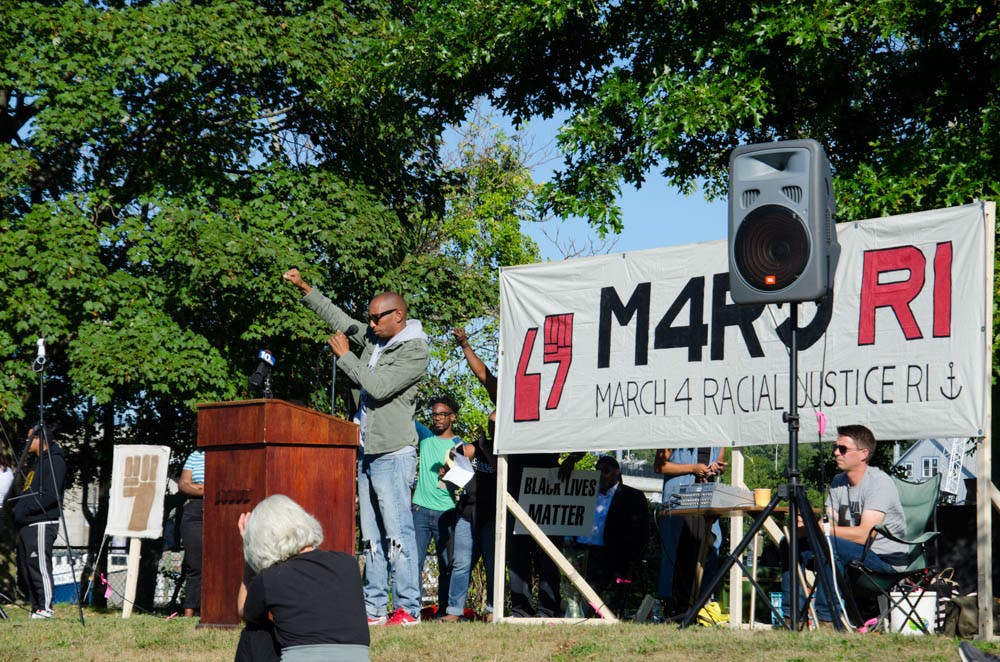Rhode Island’s March for Racial Justice, one of the 18 marches that took place across the nation this weekend, kicked off at India Point Park Sunday afternoon with about 450 people.
The Rhode Island march featured 14 speakers, who highlighted both state-specific and national issues regarding race and equality, such as gentrification in Providence, mass incarceration, police brutality and LGBTQ+ rights. The speakers included State Rep. Marcia Ranglin-Vassell, D-Providence, and City Councilwoman Nirva LaFortune GS.
“The point of this day is to lift the movement for black lives and platform points that are already being worked on within the community, and a call for action to the things that have yet to be addressed,” said Adria Marchetti, head organizer of the Rhode Island march.
“I am black, once undocumented. I’m an immigrant, mother of a black son and daughter, and my life matters,” LaFortune said.
Ranglin-Vassell spoke about the meaning of her position as the only black woman in the Rhode Island General Assembly and the need to elect black representatives.
“We got to (President) Trump because of racism,” she said.
Ranglin-Vassell also mentioned her plans to reintroduce a bill calling for the reduction of out-of-school suspensions, which she said disproportionately affect students of color and is part of the systematic prison complex that is subsidized on “the backs of black and brown people.”
The Rhode Island march was organized in conjunction with 20 partners and five local campaigns, including the Direct Action for Rights and Equality, FANG Collective and RI NOW, all of whom are “working at the intersection of race, class, ability, gender, sexuality and environment,” according to the march’s website. The march was dotted with several booths, including a Rhode Island voter registration table. Another booth urged the end of Rhode Island public schools’ “lunch shaming” in which students without enough money for lunch are provided with more cheaply produced meals — efforts akin to a bill introduced by Ranglin-Vassell in April.
The march was supported by an online crowdfunding campaign that raised $2,040, as well as $101 from apparel sales.
A family zone was set up with Play-Doh and crayons to accommodate families with young children. This was the first time Janie Segui, who frequents such rallies, has seen a family zone, she told The Herald.
After observing that the march was “majority white people,” attendee Linda Heng said, “I would love to see more of my community show up,” such as Southeast Asian people and other minority groups, “but we’re not the majority that’s here.”
The national and local marches were originally planned to take place on Saturday, the last day of Yom Kippur, a holiday when observant Jews fast and refrain from work. The Rhode Island march was postponed to Sunday. The organizers apologized in an online statement and acknowledged that they had “made a gross underestimation, due to ignorance, of the practices and significance of this holy day.”





